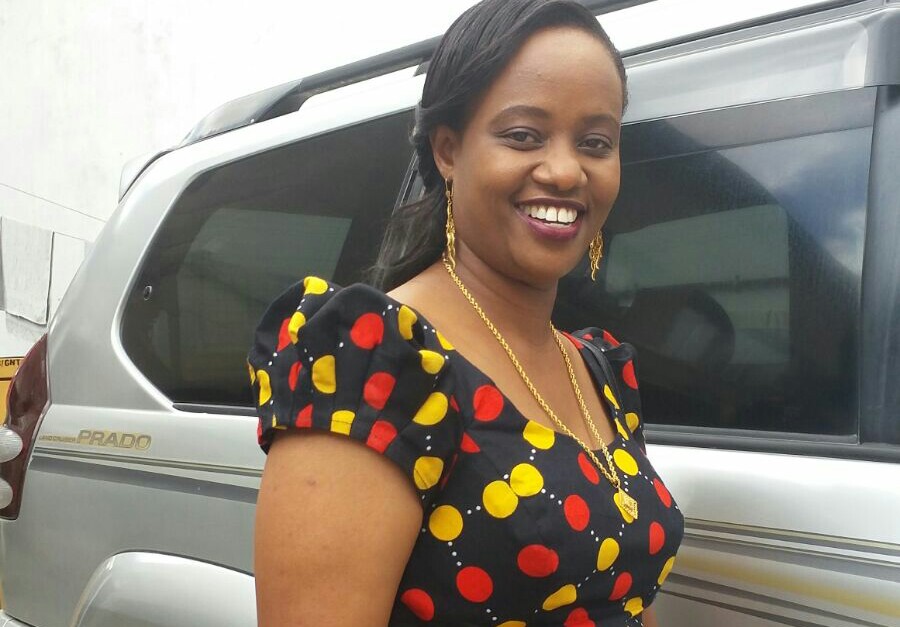She is currently the President of the Voice of Women Entrepreneurs Tanzania, (VoWET) a platform that empowers women economically in East Africa’s second biggest economy .In addition; she is a chairperson of major women’s savings and credit co-operative organization in Tanzania. However, it is her entrepreneurial journey that bagged her East Africa Entrepreneur of the Year award in 2017 that initially made her more visible in a space smothered by a patriarchal mindset.
Maida Waziri, 49, Managing Director of, Ibra Contractors Ltd, that won her the accolade of best female contractor in Tanzania for cumulatively five years ending 2015 also owns Ibra Enterprises, her first officially registered company that is engaged in the furniture and hardwood sector.
Understandably, what makes Maida a news-grabber is the fact that her road to success is simply inspirational. No wonder she is widely considered a quintessential entrepreneur who has made it to the top by sheer grit, determination and a never-say-die spirit.
Soon after completing her O Levels in 1990 Maida chose the root of entrepreneurship. Her parents could have managed to send her to high school, but that was not where her heart was. Her passion was in business.
“I dreamt of living a good life. I dreamt of employing others so they could earn a living through me. I’m glad this has happened already,” she says.
“My parents could have managed to send me to high school, but I decided to go for business. My mind was much more into business than in studies. I had this feeling of doing better in business than studying,” says the mother of three.
“The truth is my mom suffered a lot because of poverty, so I told myself since when I was a little girl that I must succeed and I would get rich and pull women up. It’s that poor background that has pushed me to where I am today, “she says.
Maida begun her sojourn in the labour market as a sales girl, selling hand-me-down clothes, commonly referred to within East Africa as ‘mitumba’. She graduated in 1992 to a seamstress after going through a basic course at that ubiquitous YMCA College where she put up time for eight years seeing her sewing machines growing in numbers from having one to 30 and was now predictably an employer employing 15 people.
It’s worth noting that Maida began her business journey with a meager $ 12 as capital
“I used to walk with an open mind hoping that people would love the clothes and buy them,” says Waziri.
Since hawking is mainly done by men, people would be surprised to see a young girl walking around the streets selling clothes. But today, the situation has changed with more women street vendors. Apart from having to walk long distances to find customers, business was not always rosy. There were days when she would sell zilch.
“But this did not deter me. This is the path I had chosen and therefore I was ready to face the challenges. I raised enough money in one year and enrolled for a tailoring course in 1993. After training for one year, I opened a tailoring mart in Buguruni (Dar es Salaam). Business was good but no matter how much money I earned, my parents were still unhappy with the decision I had made, “says Maida.
Not content with just sewing, her business acumen steered her into a myriad of business enterprises that increased her income stream including food and the transport industry, as well as owning herds of cows which provided her with milk to commercially sell including the fishery sector.
“She was the first woman to operate a motor boat at the Dar ferry, which would collect fish from Mafia Island in Zanzibar to sell in Dar es Salaam. The transport business didn’t pan out and Maida stopped the fishery venture because she didn’t relish water traveling,” recalls Amidha Busaraa, a former employer.
Not one to sit on her laurels Maida was always looking out for fresh opportunities.
“They say information is power, when I heard there was a tender from the government. I knew I couldn’t apply without having a company, so at first I used someone else’s company to apply. During this interim period, with no other option I choose to use other people’s companies.
“I got conned, I even recall the first job where this happened. When I supplied mosquito nets to State House (residential place for the country’s President), they took all my money. I then used someone else’s company, I was conned again. It was simply a hustle so I finally decided to register my own company, ‘Ibra Enterprises’ back in 1998,” recalls Maida.
Now she was deeply entrenched in doing serious business beginning with making seat covers and uniforms for the government. Noteworthy is the fact that in Oct 1999 during the burial of Julius Nyerere, the founding President of Tanzania, Maida was the sole supplier of seat covers for government vehicles. That engagement, saw her make substantial profit and she went ahead to purchase her first car.
A year later she formed Ibra Contractors Ltd (ICL), her signature enterprise to date.
“Since we were incorporated in 2000, initially as IBRA Building Contractors & General Supplies, and later as IBRA Contractors we have emerged as one of the most respected general contracting firms in Tanzania. We have grown, matured and evolved into a high level construction company that focuses on buildings, roads, bridges and even dams.We have proven our ability to take on large, complex projects while demonstrating good performance in meeting the project objectives (such as budget, time and quality) successfully. Today, we are recognized as a high performance construction firm, for our strength in traditional construction methods and for our creative, fresh approach to cutting edge technologies and delivery systems,” reads part of ICL’s website.
Working in a male dominated industry does have its challenges.
“I’ve had to prove my abilities just because I am a woman to be accepted buy my peers in the construction industry but I‘ve remained unfazed and soldered like a true professional,” says Maida.
Her other biggest challenge has understandably being finance.
“You can go to the bank to ask for a loan of Tsh. 1 billion (US$427,350) only to be asked to provide
For a business woman who began her entrepreneur journey with a less than impressive academic portfolio it’s prove of her dogged determination to better herself that today she possess a degree in Business Administration.
No wonder women need to pay attention to her nuggets when she gives her opinion about what it takes for woman to succeed in business.
“They say in entrepreneurship there are three things: skills, opportunities and reward. The first two have serious challenges but I encourage women to be brave…As an entrepreneur you have to have three eyes….“I’ve found to succeed in business one needs to know and understand the work they are involved in. Because when your employees realize you don’t know the work, they are likely to harass you.”
By Charles Wachira,




